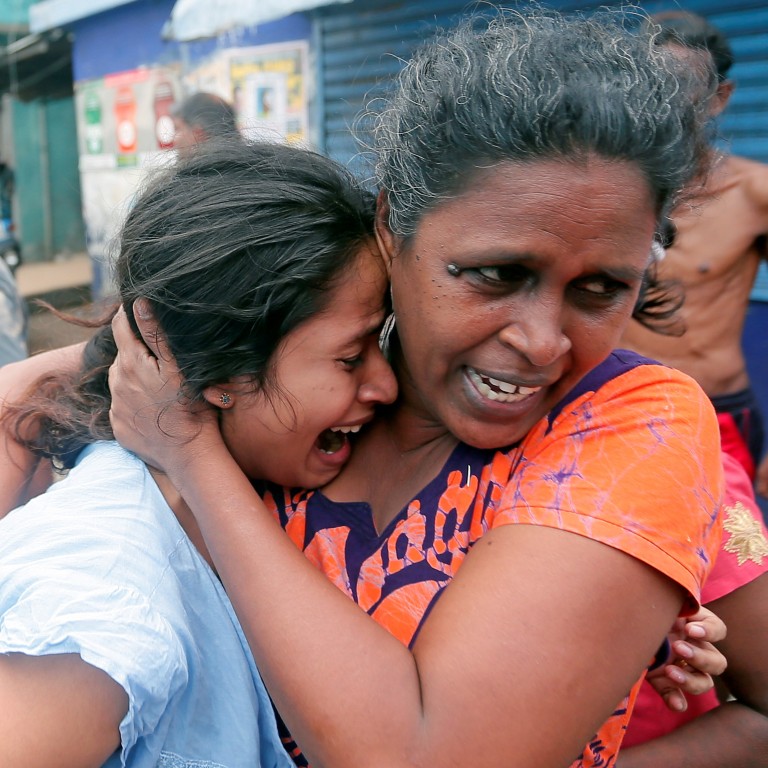
Sri Lanka suicide blasts: Islamic extremist group blamed for attack as government admits intelligence failings
- The government received several warnings about a terror attack by the domestic Islamic extremist group National Thowfeek Jamaath (NTJ), but did not act on them
- A minister said the NTJ was believed to have carried out the attacks with the assistance of ‘an international network’
No one has claimed responsibility for the blasts, although the government believed a domestic Islamic militant group called the National Thowfeek Jamaath (NTJ) was behind the bombings with the help of an international terror network.
“We do not believe these attacks were carried out by a group of people who were confined to this country,” Health Minister Rajitha Senaratne said. “There was an international network without which these attacks could not have succeeded.”

Police arrested 24 suspects for questioning, but have released few details about the detained over fears of stirring ethnic and religious tensions.
Not much is known about the NTJ, a small extremist group that has been linked to the vandalising of Buddhist statues, although Senaratne admitted the government had failed to heed advice about the NTJ’s terror plans.
International intelligence agencies had warned of the attacks several times from April 4, Senaratne said, but because of political dysfunction within the government, Prime Minister Ranil Wickremesinghe and his Cabinet were kept in the dark about the information.
Telecommunications Minister Harin Fernando on Monday tweeted: “Some intelligence officers were aware of this incidence. Therefore there was a delay in action. Serious action needs to be taken as to why this warning was ignored.”
Lakshman Keerthisinghe, a lawyer and political analyst, said the government was likely “afraid” to apprehend the pro-Muslim extremists who carried out the attack as some of them had connections to the Cabinet.
Earlier on Monday, government forensic crime analyst Ariyananda Welianga said an assessment of the attackers’ body parts collected from the sites showed the blasts were coordinated.
Four of the bombs went off at about the same time, at 8.45am, with two others coming within 20 minutes. The explosions at a fourth hotel and a guest house occurred hours later.
Hong Kong issues red travel warning for Sri Lanka after bombings
Welianga said seven bombers were involved in the blasts at the Shangri-La Hotel, Cinnamon Grand, Kingsbury Hotel and St Anthony’s Shrine church in Colombo, as well as the St Sebastian’s church Negombo city and the Zion Church in Batticaloa city.
Police said they had found 87 bomb detonators – 12 of them scattered on the ground at a bus station and another 75 in a garbage dump – during raids in Colombo on Monday.
The eight explosions, which occurred mostly in and around Colombo, mark the worst violence that the South Asian island nation has seen since the end of its civil war a decade ago.
A ninth explosion reportedly went off on Monday in a van parked near St Anthony’s Shrine, one of the three churches targeted the previous day, when bomb squad officials tried to defuse it.
Witness recalls panic, chaos as bombs rip through Sri Lanka’s capital
President Maithripala Sirisena said a state of emergency would be effective from midnight “to allow the police and the three forces [the army, navy and air force] to ensure public security”.
The government lifted an indefinite curfew ordered on Sunday after the attacks, but a new curfew began running from 8pm on Monday until 4am on Tuesday.
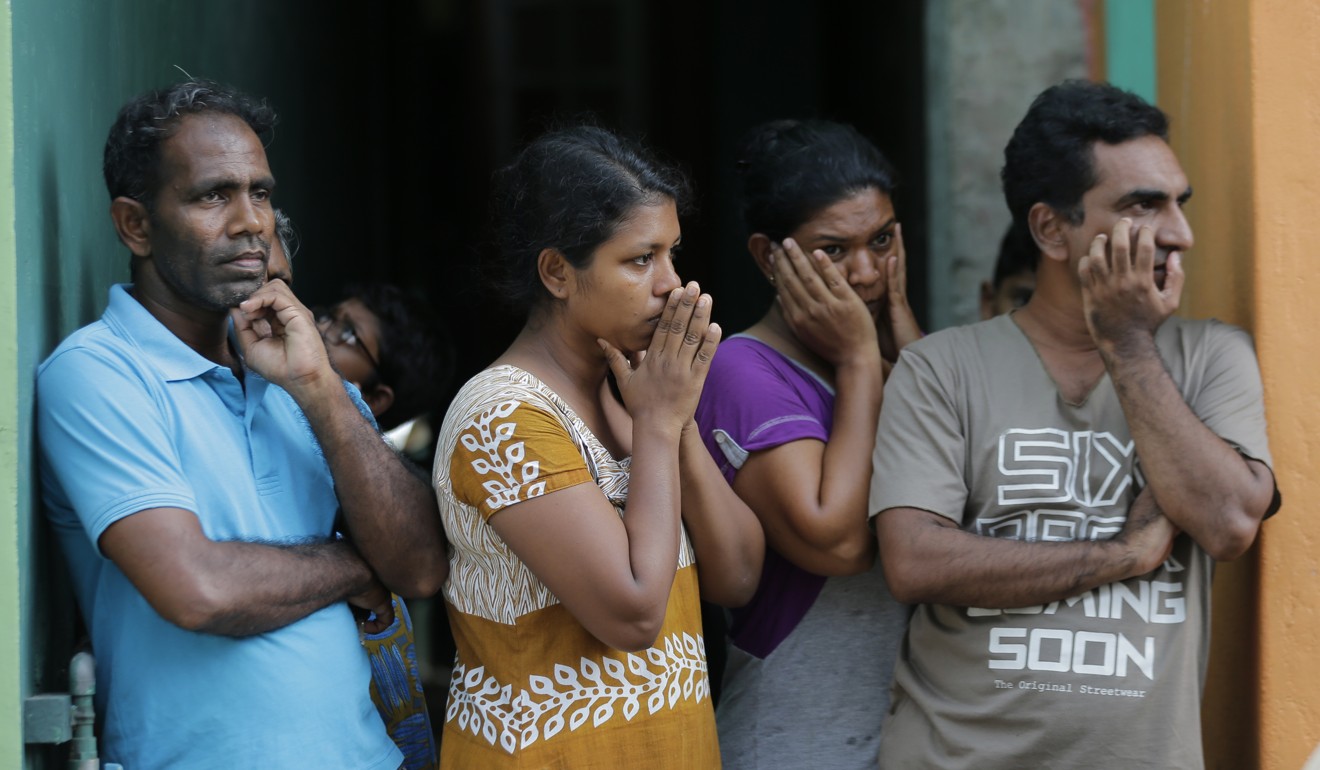
Meanwhile, residents in Colombo were in a state of anguish and devastation, as they struggled to come to terms with the deadly assaults.
Streets were bereft of bustle and restaurants were seeing a fraction of the crowds normally expected on a weekday.
Mariadas, an elderly resident, said he was attending a church service at the St Anthony’s Shrine, when the roof masonry collapsed with a loud bang, killing his son and son-in-law.
“We go to the church for the expiation of sins. We go there for joy and for redemption. But what’s happening in this country when we can’t go there any more?” he questioned, gesturing to the sky. “The church fell upon us.”
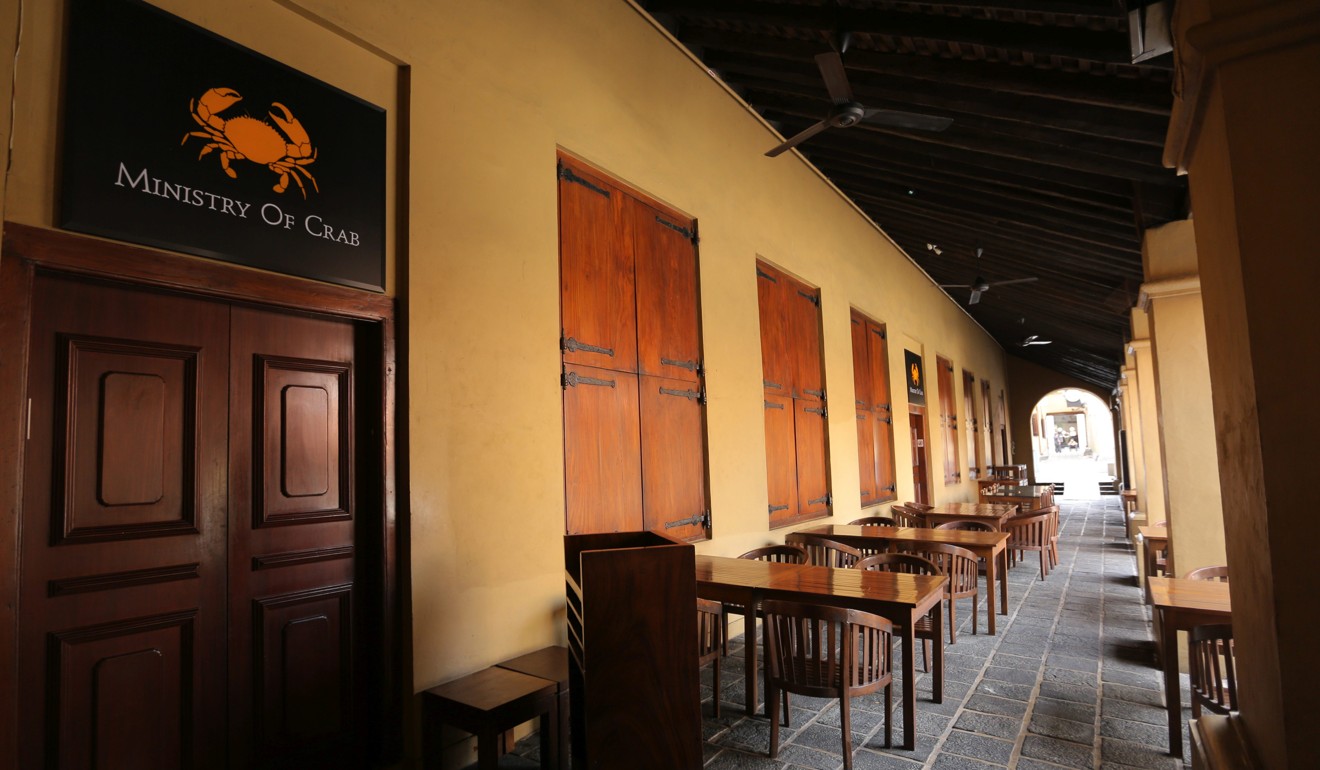
Scenes at the National Hospital Colombo were also eerily calm, as many of the victims had lost their lives.
“The accident ward is calm [because] the mortuary is where the patients are,” said a hospital attendant, who saw large numbers of bodies sent there in the morning.
Amid the quiet scenes in the country post-attack, tourists flocked to the main airport as they scrambled to leave Sri Lanka.
Annika Wesche, a 27-year-old law student from Germany, arrived in Colombo on Sunday on the final leg of her three-month visit in the country.
She struggled to get through to family and friends back home after authorities blocked social media platforms like Facebook and WhatsApp to prevent the spread of fake news.
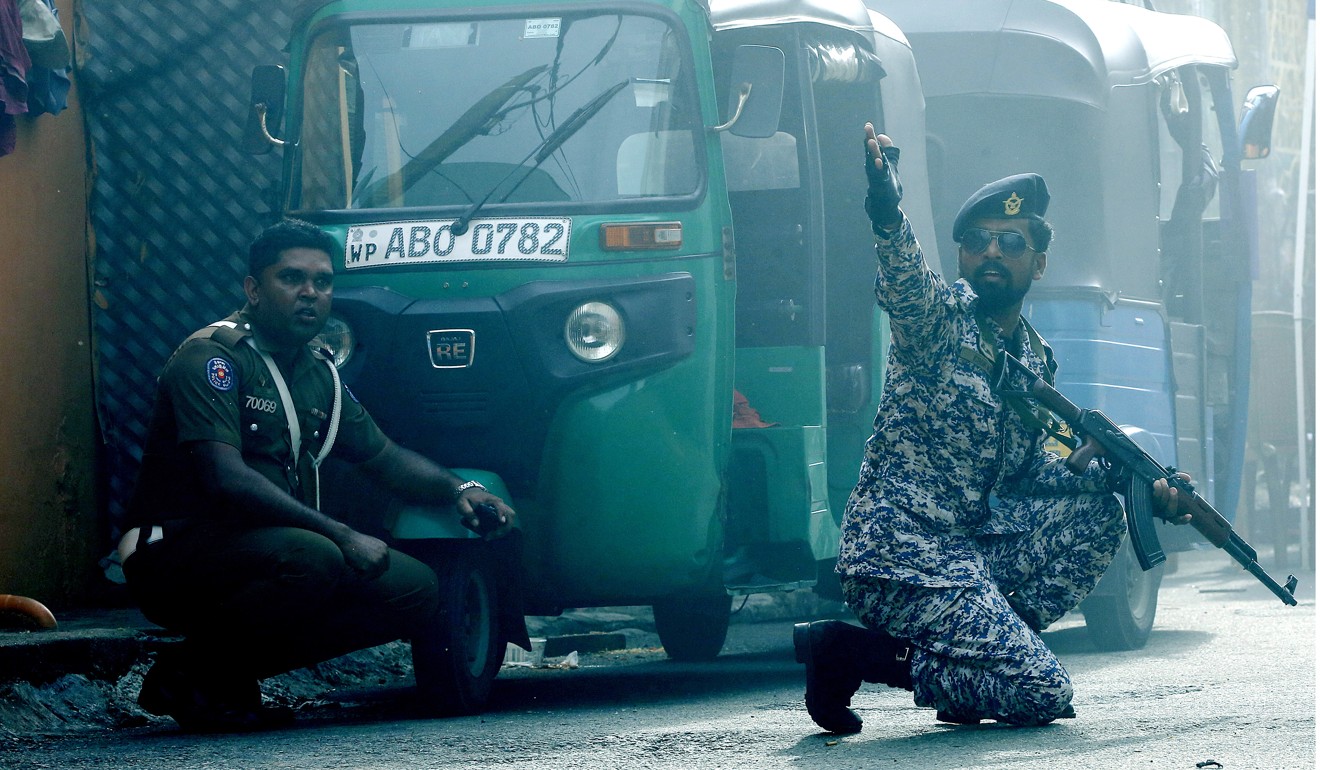
“I’m now worried about going back,” she said, citing reports of a pipe bomb found along the road leading to the international airport. “Will there be flight cancellations?”
Kishu Gomes, chairman of the Sri Lanka Tourism Development Authority, said he could not give an exact count of the number of people leaving, but it could run into the thousands.
Sanath Ukwatte, president The Hotels Association of Sri Lanka, said the Mount Lavinia Hotel, which he owns, has had about 20 per cent of its bookings cancelled, with more expected.
“Everyone is in shock right now,” he said. “This is the first time tourist hotels have been targeted in this manner. Every hotel has increased security.”

The attack is a huge setback for the tourism industry, an economic bright spot for the island nation’s economy, which has struggled to regain its footing following a three-decade civil conflict that ended in 2009 and political turmoil last year. Visitor arrivals have increased more than five times since the war ended.
Sri Lanka was the top travel destination for 2019 in the Lonely Planet’s annual rankings, with tourists attracted by its religious diversity, historic temples, rich wildlife, and growing surf scene.
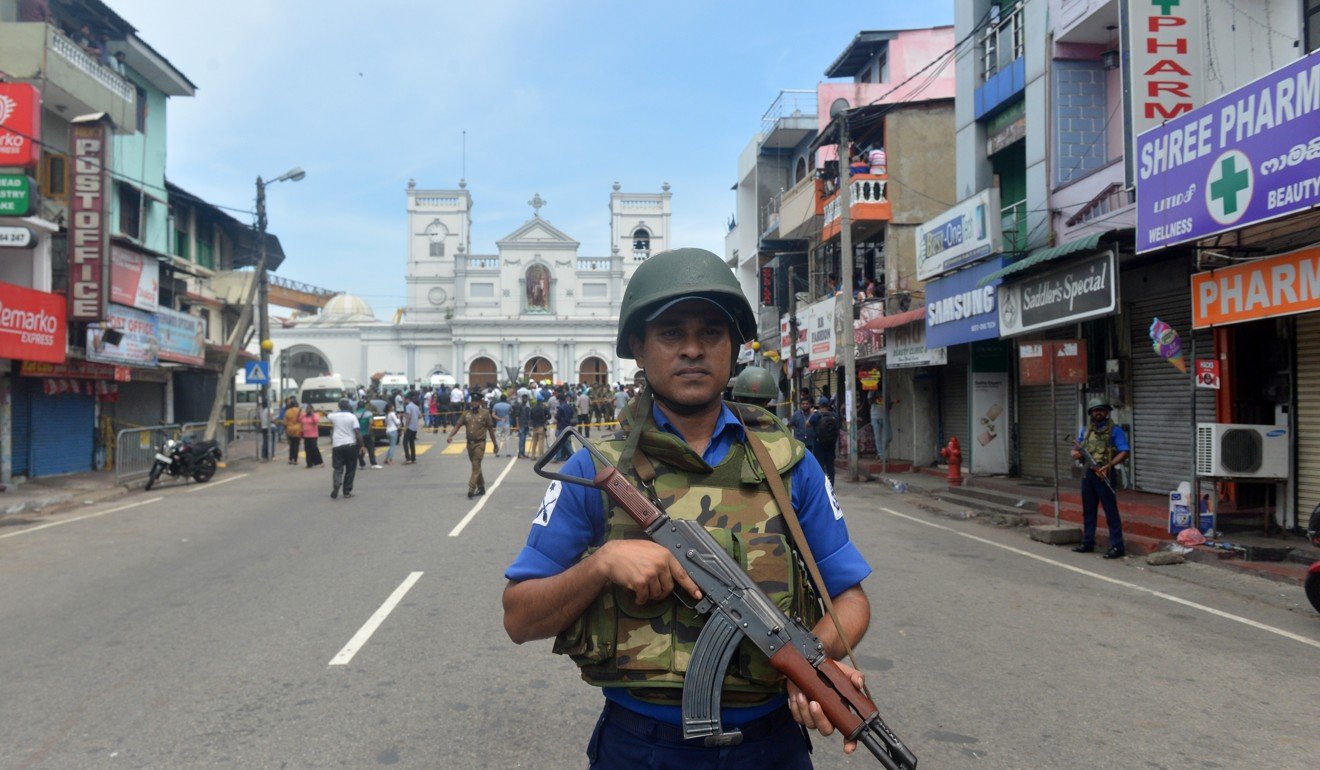
“Even during 26 years of war, we did not experience a calamity like this,” said Hiran Cooray, chairman of Jetwing Symphony, the investment arm of Sri Lankan hotelier Jetwing.
Pronab Sarkar, president of the Indian Association of Tour Operators, predicted a “knee-jerk reaction” among all tourists and relief thereafter.
“Cancellations and change in plans will be visible for the next 15 days and then it should start reviving again,” he said. “The government can’t afford to let that sink again,” he said of Sri Lanka’s rejuvenated tourism sector.
Agence France-Presse, Associated Press, Bloomberg and Reuters all contributed to this story.

